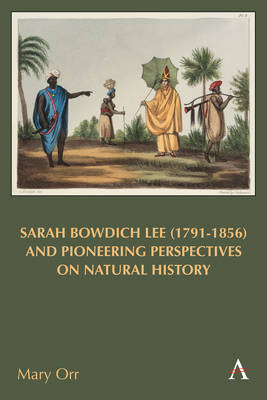
- Retrait gratuit dans votre magasin Club
- 7.000.000 titres dans notre catalogue
- Payer en toute sécurité
- Toujours un magasin près de chez vous
- Retrait gratuit dans votre magasin Club
- 7.000.0000 titres dans notre catalogue
- Payer en toute sécurité
- Toujours un magasin près de chez vous
Sarah Bowdich Lee (1791-1856) and Pioneering Perspectives on Natural History
Mary Orr
177,45 €
+ 354 points
Description
This first book-length appraisal of the pioneering perspectives of Sarah Bowdich Lee (1791-1856) on natural history in the first half of the nineteenth century pivotally highlights the intercultural, interdisciplinary and multi-genre reach of her work. The fact that she undertook it independently and transnationally over three decadeschallenges approaches to women, gender and national nineteenth-century scientific endeavour that have defined women at work in the period by their secondary roles (to more famous men in science) that also delimit their contributions and discoveries(as domestic). By focusing on how Sarah undertook her science despite the many bars to women in its fields, this study also promotes one woman's blueprint for non-conformist independent work and, in consequence, an alternative paradigm for the 'leaky pipeline' model still informing women's careers in STEM(M) today.
Spécifications
Parties prenantes
- Auteur(s) :
- Editeur:
Contenu
- Nombre de pages :
- 310
- Langue:
- Anglais
- Collection :
Caractéristiques
- EAN:
- 9781839986093
- Date de parution :
- 17-09-24
- Format:
- Livre relié
- Format numérique:
- Genaaid
- Dimensions :
- 152 mm x 229 mm
- Poids :
- 625 g

Les avis
Nous publions uniquement les avis qui respectent les conditions requises. Consultez nos conditions pour les avis.






